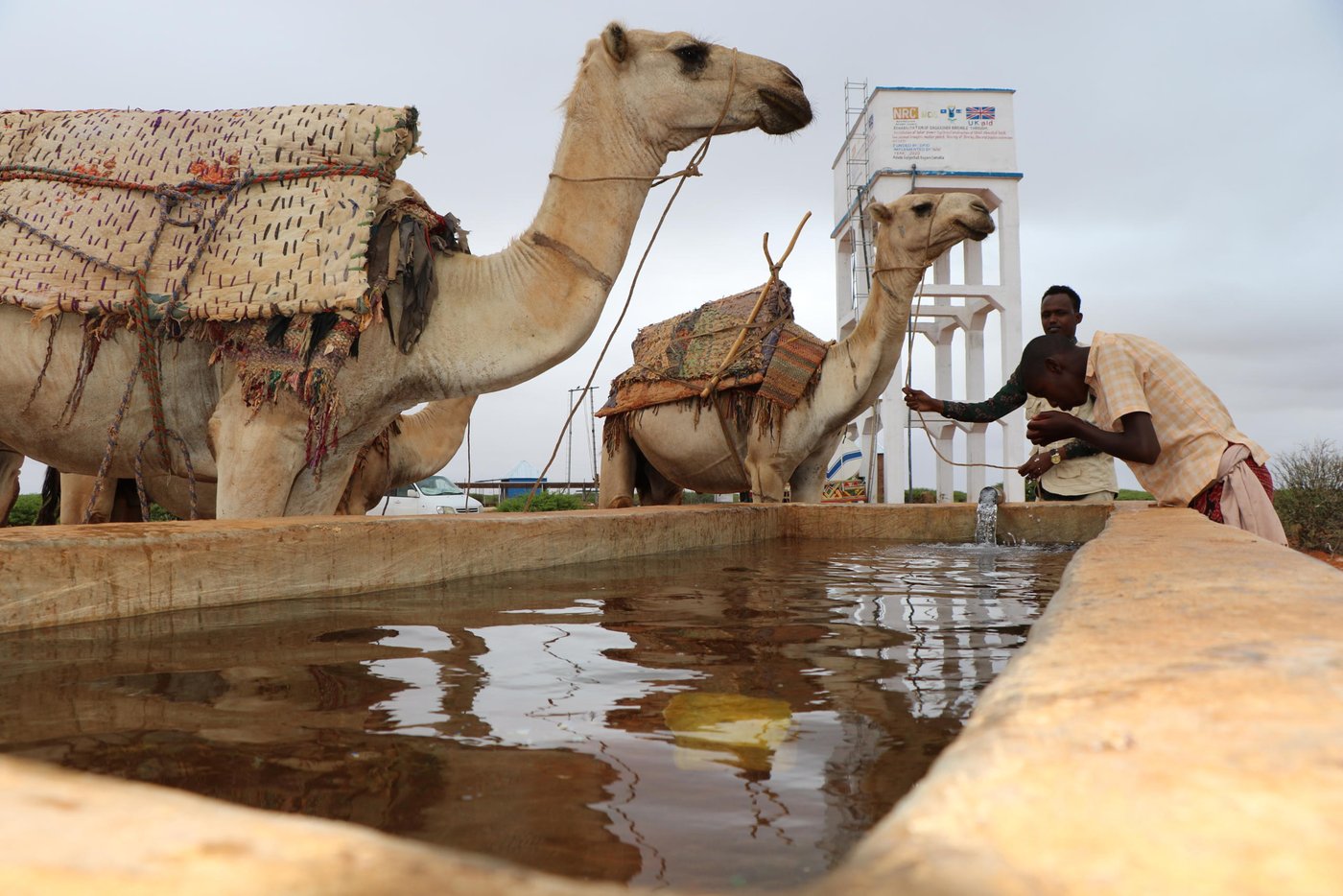Life in rural Somalia is not easy. Basic services are difficult to access, and clean water is in short supply. Drinking water is particularly important in Somalia, where many families are dependent on their livestock to survive.
Yet, only 52 per cent of Somalia’s population has access to a basic water supply. This means many families are forced to walk long distances every day to fetch water from open wells that are not always clean.
Drinking unclean water
Hassan Dhore lives with his family in Dhagahdher village, over 20 kilometres from the nearest town, in the Galgadud region. This area of central Somalia is flat and dry, and is mostly inhabited by herders living in small villages.
“Getting enough drinkable water for my family was never easy,” he explains. “I used to wake up early in the morning and walk long distances to fetch just four jerrycans of water.”
The Norwegian Refugee Council (NRC) works to support refugees and displaced people in over 30 countries around the world, including Somalia. Support our work today.

“Sometimes, I used to spend half a day fetching water that turned out to be unclean,” Hassan says. “But since we had no other options, we used to drink it.”
“We used to prioritise the water I collected for drinking and cooking only. We didn't have enough for bathing or washing clothes.”
A new borehole
A solution was needed to this desperate situation. So, in early 2020, the Norwegian Refugee Council (NRC) undertook to rehabilitate the borehole in Hassan’s village.
The work was funded by the UK’s Foreign, Commonwealth and Development Office (FCDO) and involved the installation of:
- a solar power system
- an elevated tank
- two animal troughs and a water point
- fencing around the borehole
- a 1km pipeline extension
The project has made a huge difference to Hassan and the other people living in this rural community. They now have easy access to clean drinking water for both themselves and their livestock.
“This is the first time I’ve had access to safe and clean water,” says Hassan. “Water is very important to us. It plays a crucial role in our lives.”
“I only need to spend 20 minutes fetching water from this water point. It’s a much better alternative to our previous way of getting water.”
“It’s an important milestone that this rural village now has access to clean water for the first time.”

This activity was part of NRC’s Building Resilient Communities in Somalia (BRCiS) project, with funding support from the UK’s Foreign, Commonwealth and Development Office (FCDO).


